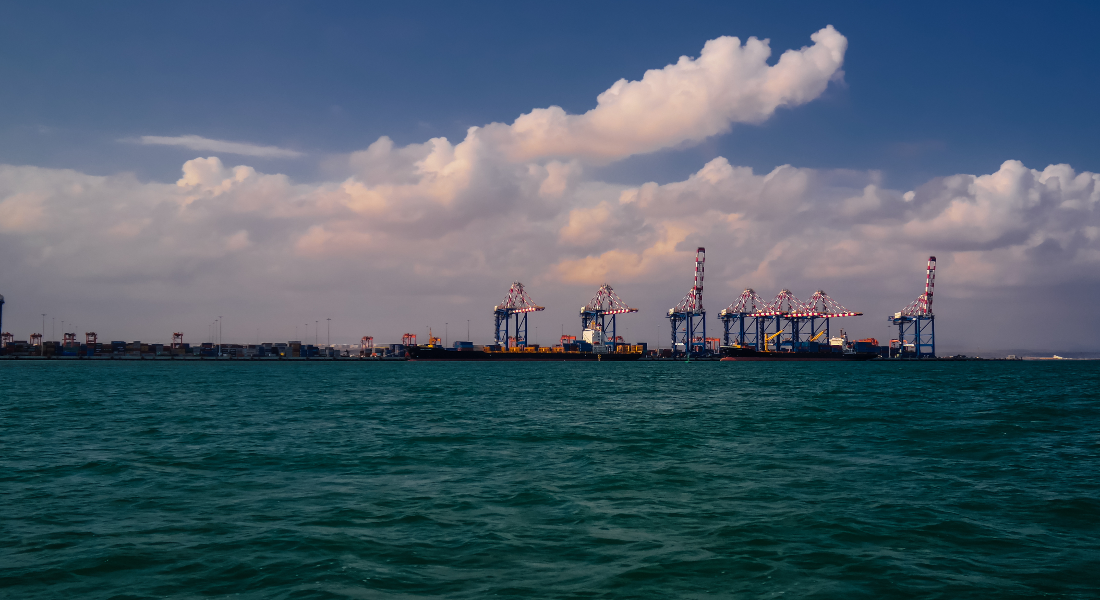OPINION
Djibouti – a sea of opportunities
Djibouti is one of the smallest countries in Africa. Its strength lies in its location at the southern entrance to the Red Sea and the fact that it is adjacent to some of the world’s busiest shipping lanes, acting as a bridge between Africa and the Middle East.
According to the World Bank’s global economic prospects report, Djibouti is expected to experience the strongest growth in the gross domestic product (GDP) in Africa this year. The country’s growth remained positive at 0.5% in 2020, following the recovery of key domestic markets. What is more, the output growth in Djibouti is set to reach 5.5% in 2021 and an average of 6.1% a year in 2022 and 2023. This will put the country’s shipping, logistics and telecommunication services to the test.
Djibouti’s ports lead the country’s economy. The system is among the most sophisticated in the world, and trade through these ports is expected to grow rapidly in parallel with the expanding economy of the country’s largest neighbour and main trading partner, Ethiopia.
In October 2020, the Djibouti Sovereign Fund provided support to pool the country’s wealth, invest in partnerships on international projects, boost the domestic private sector and steadily increase savings.
"Djibouti is expected to experience the strongest growth in the gross domestic product (GDP) in Africa [in 2021]".
Meanwhile, the Vision 2035 development plan established in 2013 has led to:
the development of a first-rate ecosystem and new railway line to Addis Ababa (October 2016);
the commission of the Doraleh Multipurpose Port (2017-2018);
the building of mineral ports in Ghoubet (June 2017) and Tadjourah (June 2017);
the creation of the Djibouti International Free Trade Zone (July 2018);
an agreement between Air Djibouti and Ethiopian Airlines and the port of Djibouti (January 2021); and
a $350 million agreement with the China Merchants Group to redevelop the old Port of Djibouti (2021).
Other areas being developed include:
the tourism sector;
fishing, including untapped marine resources and artisanal fishing;
an undersea telecommunications infrastructure;
new digital and service industries; and
geothermal, solar and eolian energy.
Investment over the past few years has made Djibouti an attractive area for commerce, which is one reason why brand owners should register their trademarks before exploring business opportunities in the country.
IP protection in Djibouti
Djibouti has been a member of the WIPO Berne and Paris Conventions since 2002 and the Agreement on Trade-Related Aspects of Intellectual Property Rights since 1995. However, as it is not a member of the Madrid System, an international application through WIPO is not possible.
With regard to trademarks, Law No 50/AN/09/6th L was enacted in 2009 and was due to come into force six months after publication in the Official Journal. The publication took place on 25 May 2011 and the law came into effect on 9 June 2012.
Before filing a trademark registration in the country, brand owners should be familiar with the following aspects of the system:
Djibouti follows a multi-class filing system and uses the Nice Classification.
Service, collective, 3D, colour and certification trademarks are registrable.
A registered trademark may be subject to cancellation by any interested party if it has not been used for five consecutive years.
Trademarks are valid for 10 years from the filing date and may be consecutively renewed for the same period.
Renewal is due six months before expiry. The grace period to renew after expiration is six months.
Registration may take two to three months.
Filings must include:
power of attorney, simply signed;
applicant data;
a sample of the mark (not required for word marks);
a list of goods and/or services; and
a certified copy of the priority document (if priority is claimed).
The registration process comprises:
filing the request before the Office of Industrial Property and Commerce (ODPIC);
the issuance of an application filing receipt with the application filing number;
a formal exam conducted by the ODPIC;
the issuance of a registration certificate; and
publication in the Official Gazette of Djibouti.
There is no opposition system in Djibouti.
To sum up, Djibouti has entered 2021 with determination, despite the challenging international economic situation arising from the covid-19 crisis.
The country’s ongoing infrastructure projects, port repair and maintenance facilities should give it a competitive advantage over neighbouring ports and reinforce its position as a regional trade and logistics hub. As a result, the number of trademark applications relating to shipping, logistics, energy, tourism and telecommunication services is expected to rise in the coming years.
However, Djibouti’s growth prospects, while favourable, depend heavily on Ethiopia’s political and economic conditions, as well as foreign investment.
This is a co-published article, which was originally published in the World Trademark Review (WTR).
Learn more


